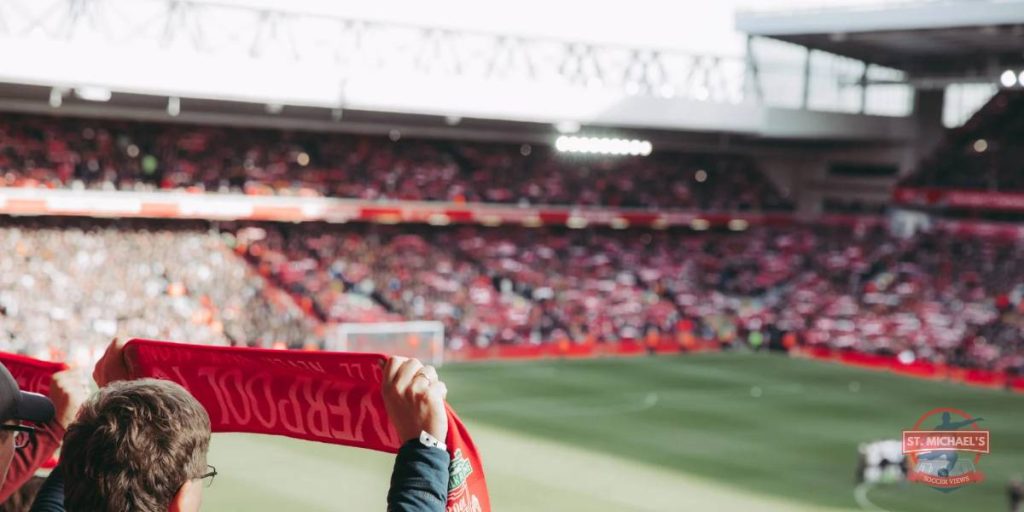The Premier League is one of the most competitive club leagues in the world. Each year, fans from all over the world look forward to watching the matches. The Premier League season has a total of 380 matches, with each of the 20 teams playing 38 games. Each team will play a home and away fixture against every other team in order to make it as balanced as possible.
Many people believe that the Premier League is the most competitive club league in the world. This is because each match matters. Teams are fighting for a position on the table, and they hope to put themselves in the best situation possible. With so many matches in a season, teams have to be strategic about how they use their players.
If you’re a fan of the Premier League, make sure to catch all the action this season!
Contents
- How Many Matches Are Played in a Premier League Season?
- August
- September
- October
- November
- December
- January
- February
- March
- April
- May
- Random Draw
- The Days on Which Premier League Matches Are Played
- Monday
- Tuesday
- Wednesday
- Thursday
- Friday
- Saturday
- Sunday
- Other matches and possible conflicts
- What happens once all games in the premier league season are finished?
- Will The Premier League Ever Grow to More Than 20 Teams?
- The Pros of a Larger Premier League
- The Cons of a Larger Premier League
How Many Matches Are Played in a Premier League Season?
The Premier League season typically runs from August to May. In a typical season, each team plays 38 games. That means that there are a total of 380 games in a season. Out of those 380 games, 140 are played at home, and 140 are played away. The other 100 games are split evenly between teams who finished in the top four positions the previous season.
How Many Games In a Premier League season each month: There are ten games in August, 9 in September, seven in October, six in November, 5 in December, 4 in January, 3 in February, two in March, 1 in April, and 0 in May.
August
The season’s first month sees all 20 teams playing ten games each. This is because the Premier League takes a break for international fixtures in September and October. The season usually starts on the second weekend in August and ends on the first weekend of May.
September
All 20 teams play nine games each during this month as the Premier League takes a break for international fixtures in October.
October
This is the month when the Champions League and Europa League group stages begin. As a result, some Premier League teams may have to play more than once a week due to their European commitments. All 20 teams play seven games each during this month.
November
All 20 teams play six games each during this month.
December
All 20 teams play five games each this month as the Premier League breaks for Christmas and New Year’s Day.
January
All 20 teams play four games each during this month as the Premier League resumes after the Christmas break.
February
All 20 teams play three games each during this month.
March
All 20 teams play two games each during this month as the Premier League takes a break for Easter.
April
All 20 teams play one game each during this month as the season nears its end.
May
No matches are played during this month, as the season ends on the first weekend of May.
Random Draw
The Premier League is one of the most popular leagues in the world, and for a good reason. The random draw ensures that big matches don’t always happen on the biggest days. For example, the opening day may only have one or two interesting matches, and the same goes for Boxing Day as well. On the final day of the season, it mostly comes down to what teams are fighting for to see if it’s intriguing or not.
Speaking of the season’s final day, all 20 teams start their matches at the same time. This makes for compelling television and ensures that teams all play as hard as possible instead of resting all of their players if a spot is already locked up.
The season starts in August and ends in May. There are a total of 38 game weeks, with ten matches in each of those weeks. The scheduling ensures that players are well-rested and fans can understand exactly when their team plays.
The English Premier League is one of the most popular soccer leagues in the world, with fans all over the globe tuning in to watch their favorite team compete every week. The league is made up of 20 teams who play 38 games throughout a season from August to May. Each team plays 19 home games and 19 away games, with ten games in August, nine in September, and so on, down to just one game being played in April before no matches are played in May. Knowing how many games are played each month can help you plan your viewing schedule, so you don’t miss your team’s biggest matches!
The Days on Which Premier League Matches Are Played

The English Premier League is the top soccer league in England. It is made up of twenty teams. The season runs from August to May, with each team playing thirty-eight matches.
Monday
Two matches are played every Monday night at 7:45 pm and 10 pm (GMT).
Tuesday
No matches are scheduled for Tuesdays during the Premier League season.
Wednesday
Similar to Mondays, two matches take place on Wednesday nights with the same kick-off times.
Thursday
Europa League matches are scheduled for Thursdays when English clubs are competing in the tournament. If there are no English representatives in the Europa League, then there are no Thursday fixtures.
Friday
One match is played at 8 pm (GMT) every Friday night during the season.
Saturday
The majority of matches are played on Saturdays, with ten games scheduled for 3 pm (GMT) and five taking place at 5:30 pm (GMT). Additional Saturday fixtures may be selected for television broadcasts at 12:45 pm (GMT) or at 7:45 pm (GMT).
Sunday
As is the case with Fridays, one game is always played on Sunday evenings at 4 pm (GMT) during the season unless it has been chosen for live television coverage, in which case it would take place at 1:30 pm (GMT), 4 pm (GMT), or 7 pm (GMT).
Note: The TV schedules usually aren’t released until a few weeks before the start of a new season, so these times are subject to change.
There you have it! A breakdown of when you can catch your favorite Premier League team in action during the 2021/2022 season. Be sure to check your local TV listings closer to the start of the season, so you don’t miss a single match!
Other matches and possible conflicts
The Premier League is home to some of the best clubs in Europe. In addition to the 38 matches in the Premier League season, players are also competing in other competitions. The Champions League is the most prestigious club tournament in the world. The top four teams from the previous Premier League season automatically qualify for the Champions League. There is also a chance for a fifth team to qualify, but only if the previous season’s winner did not finish in the top four domestically. This means that if a team like Manchester United were to win the Champions League but finish fifth or below in the Premier League, they would still get a chance to defend their title the next season.
Other competitions at the club level include the Europa League and the FA Cup. The Europa League is open to teams that did not qualify for the Champions League and eliminated from the Champions League in the early rounds. The FA Cup is a knockout tournament open to all teams in England, from the Premier League down to amateur clubs.
In addition to club competitions, many players also leave their club team to play for their international side. This can be for tournaments like the World Cup or European Championship or for friendly matches.
In the Premier League, there are many great players. This means that international duties call quite a bit. There can be players missing from a Premier League match or two at any given time because they are playing internationally. This can clutter up a schedule in a hurry, but teams are pretty good about managing their roster and ensuring that their best players get rest when possible.
Finally, the Premier League is just one part of the soccer world. There are other competitions, like the FA Cup, EFL Cup, and the FA Community Shield domestically. Outside of England, there is the UEFA Europa League, FIFA Club World Cup, and more. These matches can be pretty exciting and add some variety to a schedule.
What happens once all games in the premier league season are finished?
The Premier League is a highly competitive football league in England. At the end of the season, the top four teams automatically qualify for the following year’s UEFA Champions League group stages, while three teams are relegated to The Championship. The Championship is the second tier of English football. The three best teams in The Championship are promoted to the Premier League, replacing the two relegated teams. Position on the table is based on a point system, where three points go to a team for every win, while one goes to each team that plays to a draw. If there are any ties on the table, the winner is determined first by goal difference, then by the total number of goals scored that year.
Please welcome a ? member of The #PL 600 Club ?
— Premier League (@premierleague) November 13, 2022
? @JamesMilner pic.twitter.com/ng716MtEuC
Will The Premier League Ever Grow to More Than 20 Teams?
The current size of the Premier League is 20 teams. But, with the global popularity of the English game, is it possible that the league could one day expand to include more teams? Let’s take a look at some of the pros and cons of a larger Premier League.
The Pros of a Larger Premier League
A bigger Premier League would mean more games for fans to enjoy. While some might complain that there are already too many games, others would be thrilled to watch even more top-level soccer. In addition, a larger league would also mean more TV revenue for the clubs, leading to higher wages for players and more money to invest in youth development programs.
The Cons of a Larger Premier League
An expanded league could lead to an inflated sense of importance for certain clubs. As it stands now, every team in the Premier League knows that they could potentially be relegated to a lower division at the end of any given season. This keeps all of the clubs focused on staying a competitive year in and year out. However, if the league were to expand and create “safe spots” for certain clubs, it’s possible that complacency could set in, and overall, a bigger Premier League would have its pros and cons. While it would mean more money for the clubs and more games for fans to enjoy, it could also lead to a sense of entitlement among certain teams. Ultimately, it will be up to the powers that be to decide whether or not they want to expand the league.
Ultimately, whether or not the Premier League expands beyond 20 teams will be up to the powers that be. There are pros and cons to such a move, but it seems unlikely we’ll see any drastic changes soon. So for now, we’ll have to enjoy the 20 teams we have and hope they can give us an exciting season full of surprises!


![How Long is a Soccer Game? [Pro/College/HighSchool/Youth] 4 how long is a soccer game?](https://stmichaelssoccer.com/wp-content/uploads/2022/10/how-long-is-a-soccer-game-150x150.jpg)
